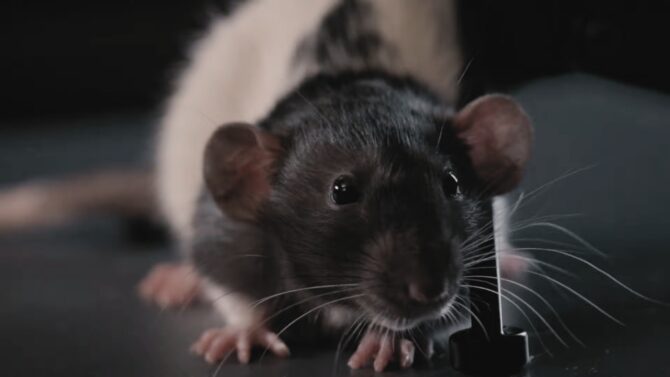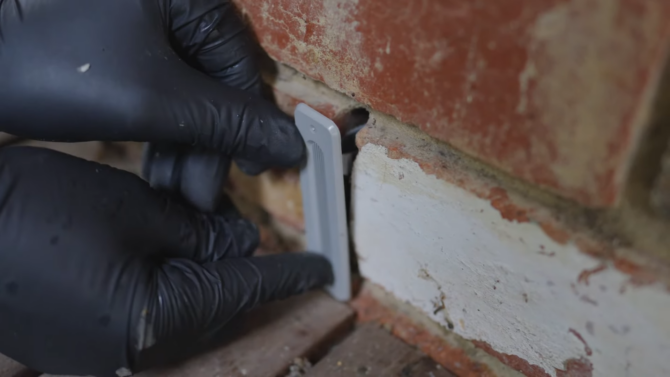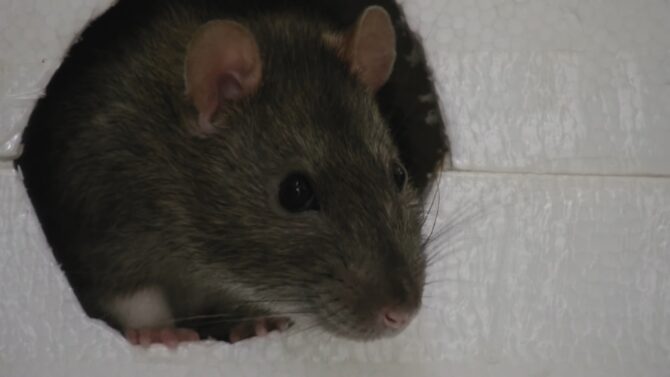Rodents are a common problem in many households and farms, often causing significant damage to crops, stored food, and property while also posing serious health risks. Traditional rodent control methods, such as poisons and traps, can be effective but may also present dangers to pets, wildlife, and children.
As awareness and concern for the environment and animal welfare grow, many people seek natural, humane, and eco-friendly alternatives to control rodent populations.
Today, I will discuss natural rodent control methods, providing a wealth of valuable insights and practical tips to manage these unwelcome guests without resorting to harsh chemicals or lethal measures.
Rodent Behavior

To effectively combat rodent problems, it’s crucial to understand their behavior, needs, and habits. Rodents, including rats and mice, are attracted to environments that offer ample food, water, and shelter.
Understanding how long rats live can also provide insights into their reproductive cycles and potential lifespan within a given habitat. They are nocturnal, highly adaptable, and capable of squeezing through incredibly small openings to enter your home or farm building.
Why is Natural Control Important?
Natural rodent control methods are vital for several reasons. They ensure the safety of children, pets, and non-target wildlife, reduce the environmental impact of chemical rodenticides, and contribute to a sustainable balance between humans and nature.
Additionally, natural methods often address the root cause of the rodent problem, leading to long-term solutions rather than temporary fixes.
For those seeking professional assistance with rodent control, incorporating services from experts like Buzz Boss can complement your natural strategies, offering specialized solutions to keep rodents at bay effectively.
Preventive Measures

Sealing Entry Points
Preventing rodents from entering your home or storage areas is the most effective way to control their population. Inspect your property for any cracks, holes, or gaps larger than a dime. Use materials like steel wool, metal sheeting, or concrete to seal these openings.
Remember, rodents can gnaw through softer materials like wood and plastic, so choosing the right sealing material is paramount.
Good Sanitation Practices
Rodents are attracted to areas where food is readily available. Maintaining cleanliness by properly storing food in sealed containers, cleaning up spills and crumbs promptly, and managing garbage and compost bins effectively can significantly reduce the attraction of rodents.
Regularly removing garden debris and trimming overgrown vegetation can also eliminate potential nesting sites.
Natural Repellents
- Essential Oils: Peppermint oil, eucalyptus oil, and citronella are known to repel rodents due to their strong scent. Soak cotton balls in these oils and place them in areas where rodents are likely to enter your home. Refresh these cotton balls every few weeks to maintain their effectiveness.
- Ultrasonic Devices: Ultrasonic devices emit high-frequency sounds that are intolerable to rodents but are inaudible to humans and most pets. These devices can be an effective deterrent, although their effectiveness can vary based on the layout of your home and the type of rodent.
Biological Control Methods
Predators

Introducing natural predators, such as cats or barn owls, can help control rodent populations. For example, a family of barn owls can consume a significant number of rodents in a single night.
Installing owl nesting boxes on your property can encourage these natural predators to take up residence.
Companion Planting
Certain plants are known to repel rodents naturally. Planting mint, daffodils, or marigolds around your home or garden can deter pests, as they find the scent of these plants unattractive.
This method not only controls rodents but also enhances the biodiversity and beauty of your garden.
Environmental Modification
- Habitat Modification: Eliminating rodent habitats around your property can significantly reduce their population. Clear away brush piles, deep mulch, and other debris where rodents may find shelter. Ensure that firewood stacks are kept at a distance from your home and raised off the ground.
- Water Management: Since rodents require a steady water source, eliminating standing water around your property can make it less attractive to them. Repair leaky faucets, ensure proper drainage of your yard, and cover water storage containers to cut off their water supply.
Community Involvement

Rodent control is not just an individual concern but a community issue. Engaging with neighbors and local authorities to implement widespread natural rodent control measures can amplify the results.
Sharing strategies, such as proper waste management and community clean-up drives, can significantly reduce the overall rodent population in an area.
Monitoring and Maintenance
Regularly inspect your property for signs of rodent activity, such as droppings, gnaw marks, and nests. Continuous monitoring allows you to identify and address new or ongoing issues promptly.
Maintaining the implemented control measures, such as sealing entry points and keeping the area clean, is crucial for long-term rodent management.
Innovative Natural Repellents
Biodegradable Repellent Granules
Recent advancements have led to the development of natural, biodegradable repellent granules that can be scattered around the perimeter of your property. These granules are made from essential oils and other natural ingredients that are safe for children, pets, and wildlife but are unpleasant to rodents.
They provide a barrier that deters rodents from entering the area and being biodegradable, they don’t harm the environment.
DIY Natural Repellent Sprays

Creating your own natural repellent spray is a cost-effective and eco-friendly solution. Mix water with essential oils like peppermint, cinnamon, or garlic oil.
Spray this mixture around potential entry points, baseboards, and garden areas. These sprays need to be reapplied regularly, especially after rain, to maintain their effectiveness.
FAQs
Can Coffee Grounds Deter Rodents?
Yes, coffee grounds can deter them due to their strong smell. Sprinkle used coffee grounds around your garden or the perimeter of your home to keep them at bay.
Do Ultrasonic Devices Affect Domestic Pets?
Most pets, such as dogs and cats, are not affected by ultrasonic devices designed to repel rodents. However, these devices can affect pets like hamsters and guinea pigs.
How Often Should I Replace Essential Oil-Soaked Cotton Balls?
Replace them every 2-4 weeks to ensure they maintain their effectiveness as a repellent.
Can Vinegar Be Used as A Rodent Repellent?
Yes, it can. The strong scent of vinegar repels them. Apply vinegar around areas of suspected activity, but be cautious, as it can harm plants and surfaces.
Are There Any Flowers that Specifically Repel Rodents?
Yes, flowers like lavender and amaryllis are known to repel them due to their strong scent.
How Does Companion Planting Deter Rodents?
Companion planting deters them by integrating plants that rodents find unattractive or repulsive into your garden layout, thereby creating a natural barrier against them.
Final Words
Natural rodent control methods offer a safer, more sustainable approach to managing rodent populations. Knowing rodent behavior, implementing preventive measures, utilizing natural repellents, and engaging in community efforts will make it possible to effectively control these pests without harming the environment, wildlife, or our health.

